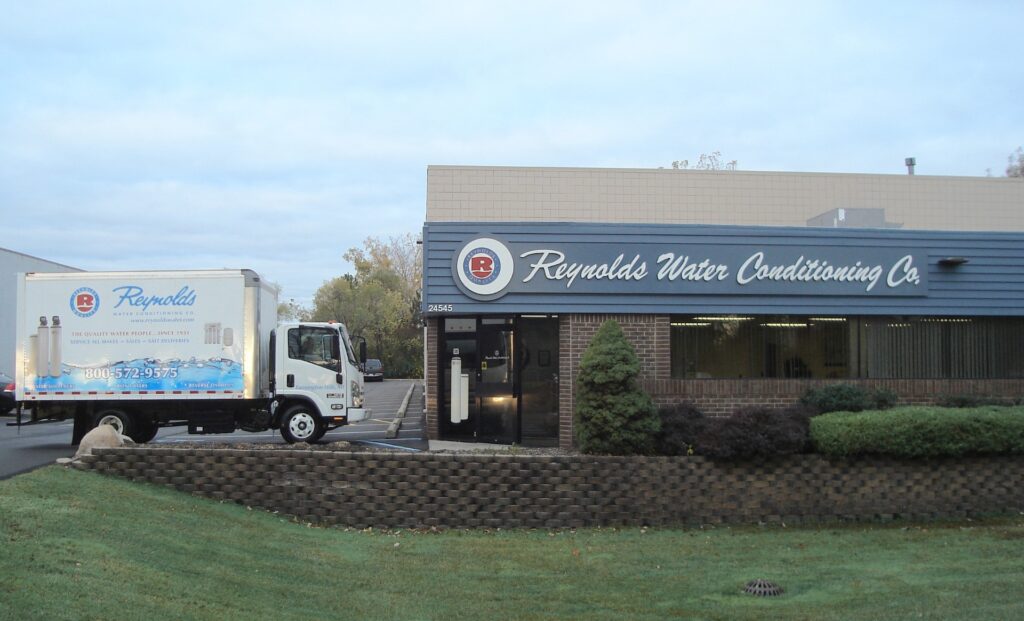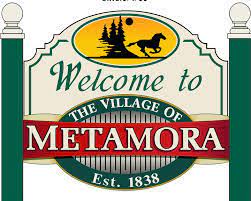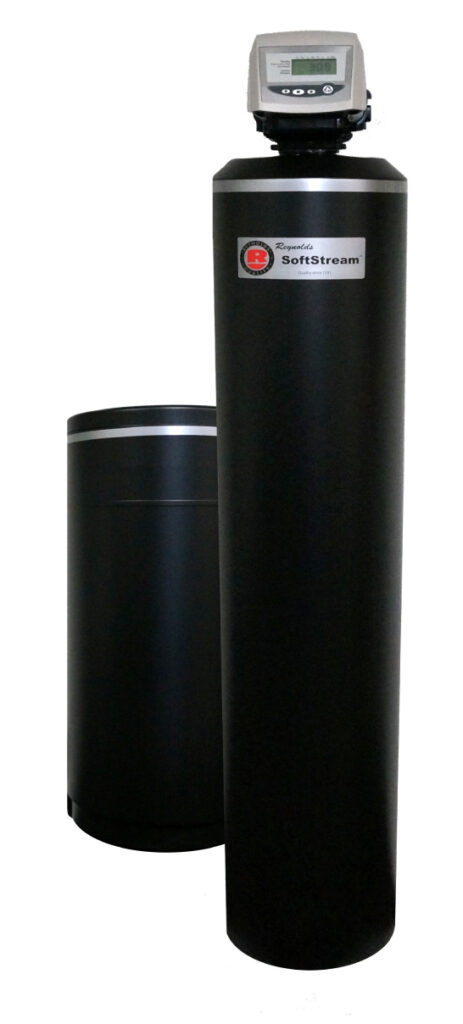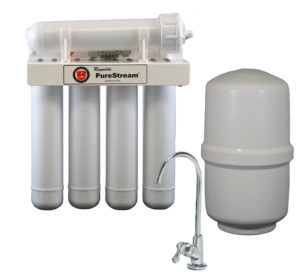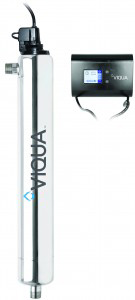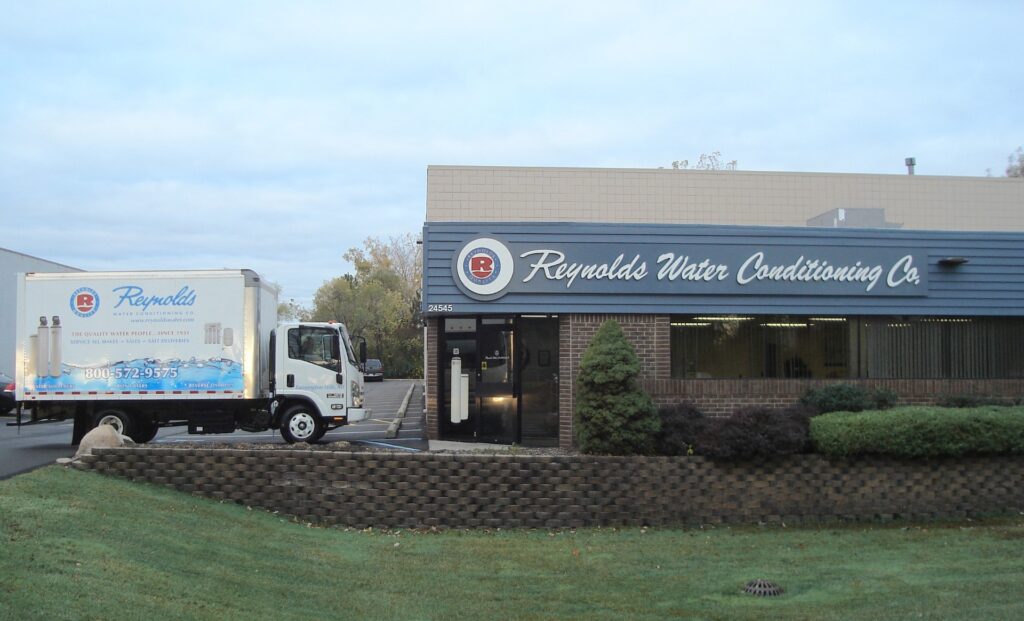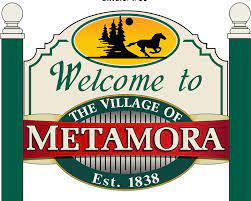
Rotten egg smell and other odors may occur in your water supply. This is most likely caused by Iron bacteria in Metamora and this region. Iron bacteria can be responsible for a hydrogen sulfide odor which is a colorless gas that can exist naturally in groundwater. Sulfur-reducing bacteria present in groundwater use sulfur as an energy source to chemically change sulfates to hydrogen sulfide. This bacteria specifically uses sulfur from decaying plants and other organic matter in oxygen-deficient environments. They can occur in deep or shallow wells and eventually reside in plumbing systems. Hydrogen sulfide can reveal itself in other ways too. Hot water heaters that have a magnesium or other metallic anode rods used for corrosion control can chemically reduce sulfates to hydrogen sulfide.

Hydrogen sulfide also can enter surface water through springs and is most common in shale and sandstone. It has been found concurrently with groundwater with low pH and/or groundwater with high levels of iron and/or manganese. There is a pungent smell at low concentrations, consequently most people can detect concentrations above 0.03 ppm. There is no Maximum Contaminant Level established by the United States EPA.
IS HYDROGEN SULFIDE A HEALTH RISK OR AESTHETIC PROBLEM?
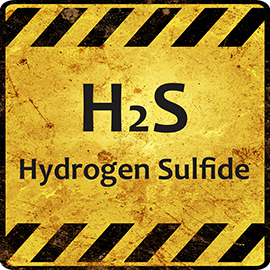
Usually it is not a health risk at concentrations present in household water. However, hydrogen sulfide gas is flammable and poisonous at high concentrations. Furthermore, build-up of hydrogen sulfide concentrations in confined areas has been known to cause adverse health effects.
OTHER AFFECTS – Hydrogen sulfide is corrosive and can eventually leach metals from plumbing systems into the water. The result of this corrosion of metals by hydrogen sulfide can be a black precipitate that can stain laundry and bathroom fixtures, darken silverware, and discolor copper and brass utensils.
For more information on Iron Bacteria, see link at https://www.watersystcouncil.org/wellcare/sheets/Iron-Bacteria.pdf
HOW DO I REMOVE THE ROTTEN EGG SMELL FROM MY WATER SUPPLY?
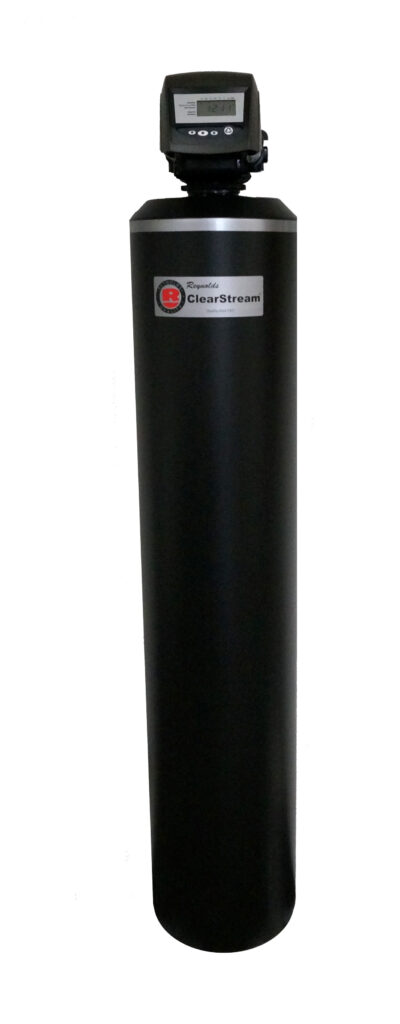
Iron Bacteria & Odor Removal
There are a number of technologies available to remove the rotten egg smell in your water, however, it cannot be viewed in a vacuum. Consequently, pH level, iron level, as well as other contaminants present in the water must be evaluated for an effective, comprehensive solution to this issue
Rotten egg smell in water removal methods
· Oxidizing filters which work for concentrations up to 6 ppm. The filter contains sand with a manganese dioxide coating that changes hydrogen sulfide gas to tiny particles of sulfur that are trapped inside the filter.
· Oxidation removes hydrogen sulfide concentrations exceeding 6 ppm. It can be done by aeration, chlorination, and potassium permanganate.
· Activated carbon filters can be effective when hydrogen sulfide is present in low levels (up to about 0.3 ppm). The hydrogen sulfide is absorbed onto the surface of the carbon particles. Moreover, filters require periodic replacement as they can harbor sulfate-reducing bacteria
· Shock chlorination of your well may reduce the hydrogen sulfide-producing bacteria. It’s most effective in water with a pH between 5 and 7, however, ineffective in alkaline (higher pH) water. An activated carbon filter may be necessary to remove residual chlorine or small amounts of remaining hydrogen sulfide. Usually, however, the iron bacteria returns and is subsequently not a long lasting fix.
· Water heater modification is necessary when hydrogen sulfide is causing an odor within the water heating system. Accordingly, replacing the magnesium corrosion control rod with one made of aluminum or other metals usually improves the situation, however, you should check the manufacturer’s warranty on the water heater to make sure you aren’t voiding the warranty.
For a solution that is right for your situation, consult a water treatment professional.
Reynolds Water Conditioning has been installing and servicing water softening and filtration systems since 1931. Each system is tailored to meet the specific needs of each homeowner or business owner. To reach us, call 800-572-9575 or email us at greatwater@reynoldswater.com.


